Recombinant Mouse Nanp Protein, Myc/DDK-tagged
| Cat.No. : | Nanp-4287M |
| Product Overview : | Purified recombinant protein of mouse full-length N-acetylneuraminic acid phosphatase (Nanp), with C-terminal MYC/DDK tag, expressed in HEK293T cells. |
- Specification
- Gene Information
- Related Products
- Case Study
- Application
- Download
| Species : | Mouse |
| Source : | HEK293 |
| Tag : | DDK&Myc |
| Description : | Broad expression in liver E14 (RPKM 18.1), liver E14.5 (RPKM 15.0) and 18 other tissues |
| Molecular Mass : | 27.8 kDa |
| Purity : | > 80% as determined by SDS-PAGE and Coomassie blue staining |
| Stability : | Stable for 12 months from the date of receipt of the product under proper storage and handling conditions. Avoid repeated freeze-thaw cycles. |
| Storage : | Store at -80 centigrade after receiving vials. |
| Concentration : | >50 μg/mL as determined by microplate BCA method |
| Storage Buffer : | 25 mM Tris.HCl, pH 7.3, 100 mM glycine, 10% glycerol. |
| Gene Name | Nanp N-acetylneuraminic acid phosphatase [ Mus musculus (house mouse) ] |
| Official Symbol | Nanp |
| Synonyms | NANP; N-acetylneuraminic acid phosphatase; N-acylneuraminate-9-phosphatase; neu5Ac-9-Pase; haloacid dehalogenase-like hydrolase domain containing 4; haloacid dehalogenase-like hydrolase domain-containing protein 4; Hdhd4; 1600031M04Rik; MGC103377 |
| Gene ID | 67311 |
| mRNA Refseq | NM_026086 |
| Protein Refseq | NP_080362 |
| UniProt ID | Q9CPT3 |
| ◆ Recombinant Proteins | ||
| NANP-3583H | Recombinant Human NANP Protein, His (Fc)-Avi-tagged | +Inquiry |
| NANP-3896R | Recombinant Rat NANP Protein | +Inquiry |
| NANP-2825H | Recombinant Human N-acetylneuraminic Acid Phosphatase, His-tagged | +Inquiry |
| NANP-28781TH | Recombinant Human NANP, His-tagged | +Inquiry |
| NANP-2739C | Recombinant Chicken NANP | +Inquiry |
| ◆ Cell & Tissue Lysates | ||
| NANP-3980HCL | Recombinant Human NANP 293 Cell Lysate | +Inquiry |
Case 1: Maliekal P, et al. Glycobiology. 2006
The synthesis of N-acetylneuraminate (Neu5Ac), the main form of sialic acid, proceeds in vertebrates through the condensation of N-acetylmannosamine 6-phosphate and phosphoenolpyruvate to Neu5Ac-9-phosphate, followed by the dephosphorylation of the latter by a specific phosphatase. In this work, researchers have purified Neu5Ac-9-Pase more than 1000-fold from rat liver. Its dependency on Mg2+ and the fact that it was inhibited by vanadate and Ca2+ suggested that it belonged to the haloacid dehalogenase family of phosphatases. Trypsin digestion and mass spectrometry analysis of a polypeptide of about 30 kDa that co-eluted with the activity in the last purification step indicated the presence of a protein designated "haloacid dehalogenase-like hydrolase domain containing 4." The recombinant enzyme displayed a >230-fold higher catalytic efficiency on Neu5Ac-9-phosphate than on its second best substrate. Its properties were similar to those of the enzyme purified from rat liver. Neu5Ac inhibited the enzymatic activity by 50% at 15 mM, indicating that no significant inhibition is exerted at physiological concentrations of Neu5Ac.
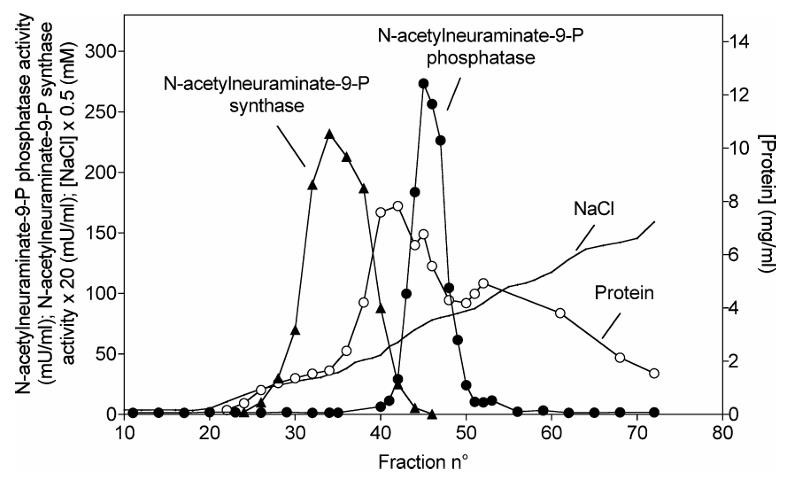
Fig1. Purification of Neu5Ac-9-Pase by chromatography on DEAE Sepharose.
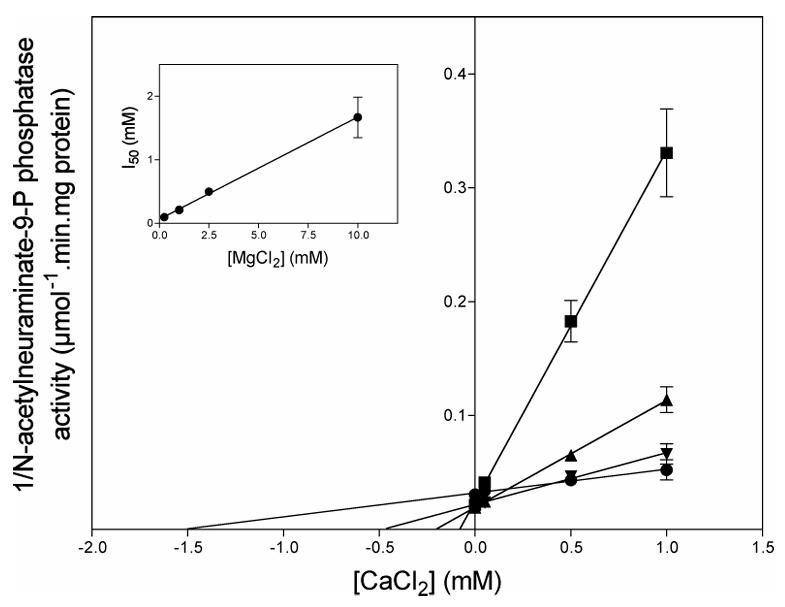
Fig2. Inhibition of human recombinant Neu5Ac-9-Pase by Ca2+.
Case 2: Kim SH, et al. Bioorg Med Chem Lett. 2013
The design, synthesis and characterization of a phosphonate inhibitor of N-acetylneuraminate-9-phosphate phosphatase (HDHD4) is described. Compound 3, where the substrate C-9 oxygen was replaced with a nonlabile CH2 group, inhibits HDHD4 with a binding affinity (IC50 11μM) in the range of the native substrate Neu5Ac-9-P (compound 1, Km 47μM). Combined SAR, modeling and NMR studies are consistent with the phosphonate group in inhibitor 3 forming a stable complex with native Mg(2+). In addition to this key interaction, the C-1 carboxylate of the sugar interacts with a cluster of basic residues, K141, R104 and R72. Comparative NMR studies of compounds 3 and 1 with Ca(2+) and Mg(2+) are indicative of a highly dynamic process in the active site for the HDHD4/Mg(2+)/3 complex.
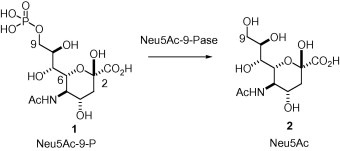
Fig1. Hydrolysis of C-9 phosphate group by HDHD4.
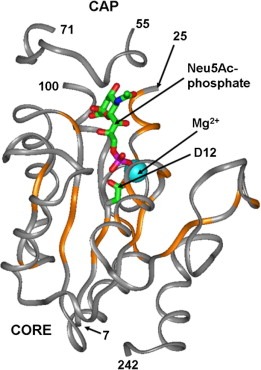
Fig2. Line-broadening effects mapped on to a model of HDHD4/Mg2+.
N-acetylneuraminic acid (Neu5Ac) phosphatase is an important biological enzyme, Nanp for short, that plays a key role in the metabolism of organisms.
Bioengineering applications: Neu5Ac is an important compound with wide applications in the food, cosmetic and pharmaceutical industries, and mouse-derived N-acetylneuraminic phosphatase can be used for biosynthesis of Neu5Ac. By means of metabolic engineering, optimizing the biosynthetic pathway of Neu5Ac and reducing the accumulation of intermediate products can increase the yield of Neu5Ac.
Basic research: The rat Nanp gene has a high degree of homology with the human NANP gene, so the rat can serve as an important animal model for the study of human diseases and drug development. Studying the Nanp gene in rats will help to understand the Neu5Ac biosynthesis process and develop related therapies. Studies have shown that Neu5Ac can reduce hypercoagulability in rats with hyperlipidemia induced by a high fat diet, suggesting that Neu5Ac may help prevent clotting related cardiovascular events.
Drug development: Neu5Ac phosphatase is a key enzyme in the Neu5Ac biosynthetic pathway, and its research contributes to the development of drugs that regulate the level of Neu5Ac, which may have important significance for the treatment of related diseases.
Food and cosmetics industry: Neu5Ac has application potential in food and cosmetics industry due to its various physiological functions. Mouse-derived Neu5Ac phosphatase can promote the synthesis of Neu5Ac, which may have an impact on these industries.
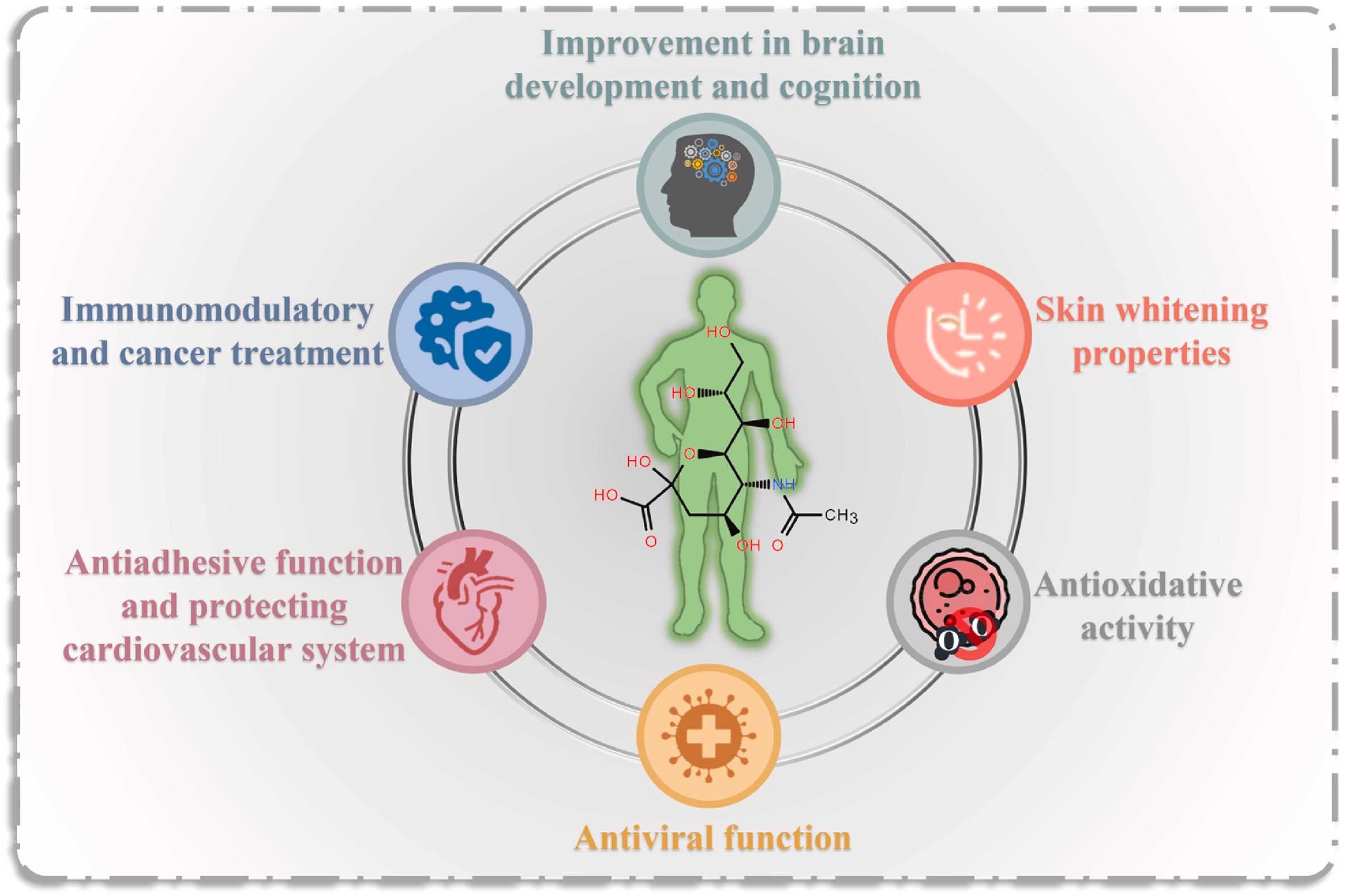
Fig1. Physiological roles of Neu5Ac. (Mingli Zhao, 2023)
Not For Human Consumption!
Inquiry
- Reviews
- Q&As
Ask a Question for All Nanp Products
Required fields are marked with *
My Review for All Nanp Products
Required fields are marked with *
Inquiry Basket


